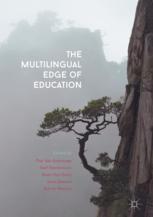

Most ebook files are in PDF format, so you can easily read them using various software such as Foxit Reader or directly on the Google Chrome browser.
Some ebook files are released by publishers in other formats such as .awz, .mobi, .epub, .fb2, etc. You may need to install specific software to read these formats on mobile/PC, such as Calibre.
Please read the tutorial at this link: https://ebookbell.com/faq
We offer FREE conversion to the popular formats you request; however, this may take some time. Therefore, right after payment, please email us, and we will try to provide the service as quickly as possible.
For some exceptional file formats or broken links (if any), please refrain from opening any disputes. Instead, email us first, and we will try to assist within a maximum of 6 hours.
EbookBell Team

4.3
28 reviewsThis book highlights the need to develop new educational perspectives in which multilingualism is valorised and strategically used in settings and contexts of instruction and learning. Situated in the current educational debate about multilingualism and ethno-linguistic minorities, chapter authors examine the polarised response to heightened linguistic diversity and how the debate is very much premised on binary views of monolingualism and multi- or bilingualism. Contributors argue that the diverse linguistic backgrounds of immigrant and minority students should be considered an asset, instead of being regarded as a barrier to teaching and learning. From its title through to its conclusion, this book underlines the current perspective of multilingualism as possessing cutting edge potential for transforming diverse classrooms into more inhabitable, more equitable and more efficiently organised spaces for learning. This book will be of interest to scholars and researchers in educational linguistics, applied linguistics, sociolinguistics, anthropological linguistics, pedagogics, educational studies, and educational anthropology.